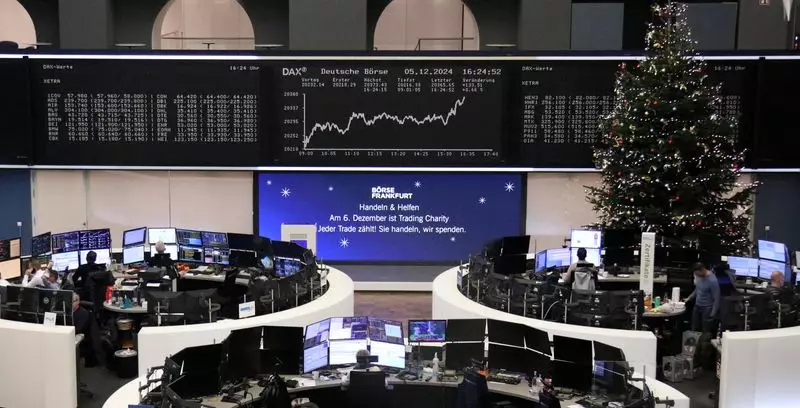European stocks experienced a minor decline on Thursday as market participants prepared for anticipated monetary policy changes from the European Central Bank (ECB). With economic indicators pointing towards slower growth amidst increasing political uncertainty, investors were particularly vigilant. Following an optimistic start, the pan-European STOXX 600 index edged down by 0.1%. Notably, while the index reflects broader market sentiments, retail stocks underperformed, contrasting sharply with the positive momentum in the automotive sector.
Traders are speculating about forthcoming rate cuts, with reports indicating an 81% likelihood of a 25 basis point reduction and a 19% chance for a more aggressive 50 basis point cut. This speculation arises as inflation within the euro zone approaches the ECB’s target while the economy shows signs of distress. As the clock ticks towards the ECB’s decision announcement at 1315 GMT, market sentiments remain fragile, underscoring the delicate balance the central bank must navigate amidst rising inflationary pressures.
Marija Veitmane, the head of equity research at State Street Global Markets, highlighted the disparity between Europe and the U.S. in terms of responsiveness to economic conditions. She suggests that European banks are inadequately quick in their rate cuts, resulting in a wider gap between European and U.S. stock performances. Indeed, the U.S. markets have witnessed a preemptive shift towards rate reductions, with recent indicators showing a more robust response to economic fluctuations compared to their European counterparts.
As the STOXX 600 index lags behind historical highs, its year-to-date growth stands at a modest 8.5%, while the S&P 500 boasts a striking 27.6% increase, showcasing a stark contrast in market health between the two regions. In individual stocks, the forecast remains mixed. British recruitment company SThree Plc faced a substantial drop of 26% after issuing a profit warning due to challenging hiring conditions exacerbated by heightened political and economic uncertainties. In contrast, Diageo Plc experienced a rebound, climbing by 3.8% following a positive upgrade by UBS, which reflects optimism regarding the spirit maker’s performance in the U.S. market.
Overall, the European stock market is currently navigating a complex landscape filled with uncertainties and external pressures. While the anticipation of rate cuts and the directional policies of central banks hold potential for future market movements, the current performance illustrates the challenges investors face. As financial markets express caution, stakeholders must remain vigilant, adapting their strategies to align with rapidly changing economic conditions. The interplay between market performance and central bank policies will continue to influence investor sentiment in the coming weeks, making it imperative for market participants to stay informed and agile.

